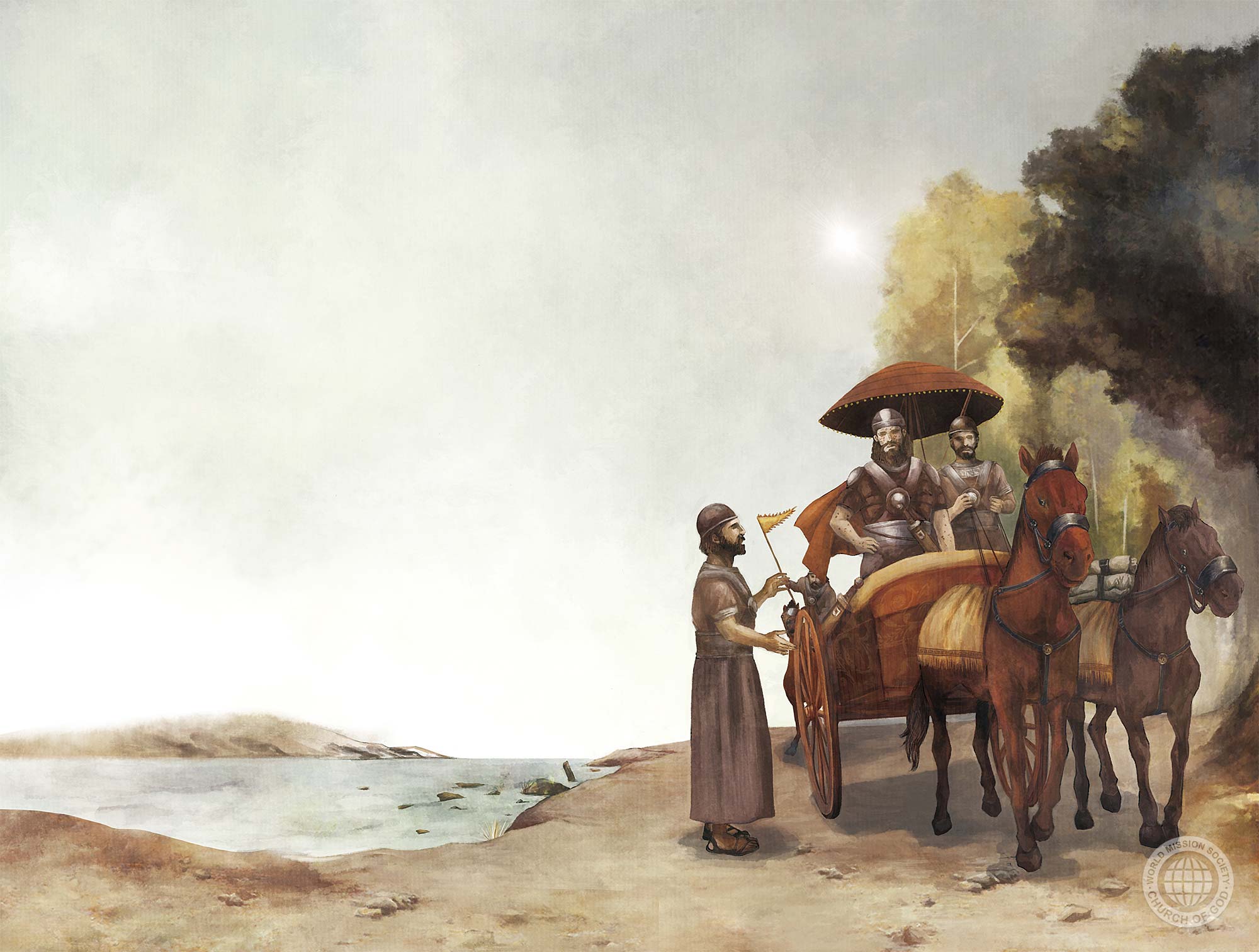
King Aram’s commander Naaman who has leprosy arrives at the door of the prophet Elisha’s place. He has come to be cured of his leprosy. However, Elisha does not come out to Naaman but sends a messenger to say, “Go, wash yourself seven times in the Jordan, and your flesh will be restored and you will be cleansed.”
Naaman goes away angry because he thought that the prophet of God would cure him, calling on the name of God and waving his hand over the spot.
What is more intolerable is to wash in the filthy Jordan River when there are other clean rivers. However, his servants’ thoughts are different, “If the prophet had told you to do some great thing, would you not have done it? How much more, then, when he tells you, ‘Wash and be cleansed’! Please don’t be angry, but wouldn’t it be better to try?”
At the words of the servants, Naaman changes his mind and does as the man of God has told him, and his flesh becomes clean like that of a young boy.
Elisha did not even make an appearance to the commander of a kingdom, and gave therapy of washing in the unclean river. Naaman whose pride was hurt at the treatment unfit for his social status complained harshly. However, at the words of his servants who interpreted the situation positively, he changed his mind and could be cured of his leprosy. What if the servants had agreed to their angry master to ingratiate with him? Naaman would have returned in vain with no reward for coming a distance, and would have suffered from the disease in his life time.
Let us never be wavered by the negative words and deeds of the people around us, but rather find what is thankful and awaken them to that with words. This is one of the important missions entrusted to the heavenly children. Let us keep in mind that words may kill or save a life.